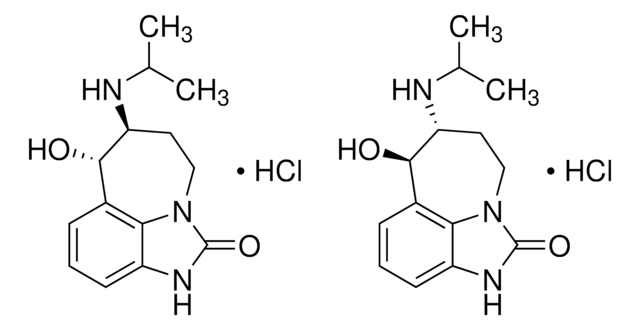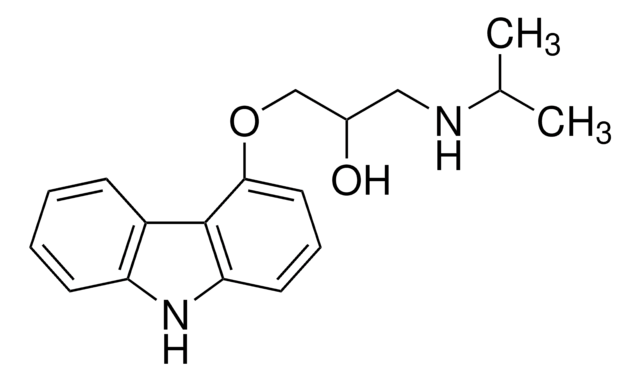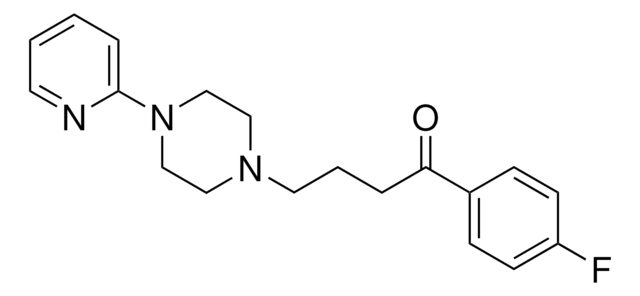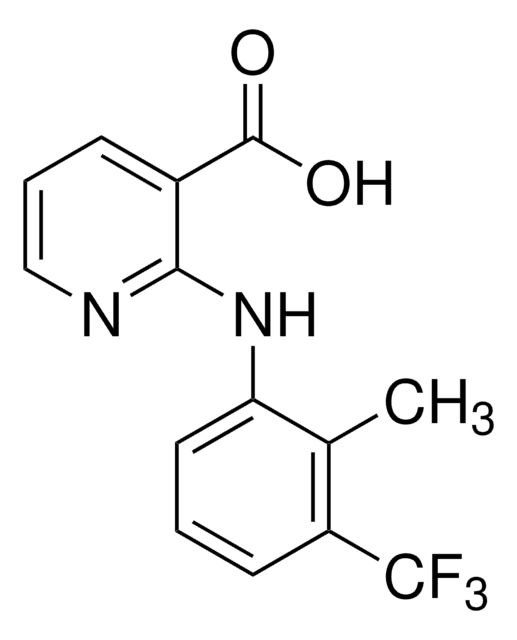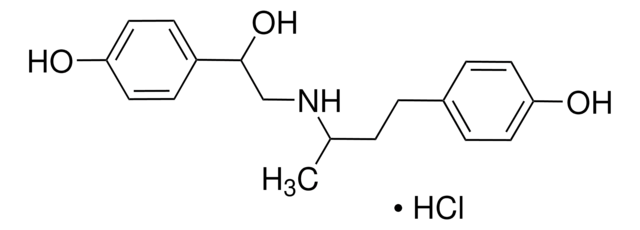A7111
Acepromazine maleate
≥98% (HPLC)
Sinónimos:
Acetopromazine maleate salt, 2-Acetyl-10-(3-dimethylaminopropyl)phenothiazine maleate salt, Acepromazine maleate salt
About This Item
Productos recomendados
assay
≥98% (HPLC)
form
powder
storage condition
protect from light
color
yellow
solubility
H2O: >10 mg/mL
storage temp.
room temp
SMILES string
OC(=O)\C=C/C(O)=O.CN(C)CCCN1c2ccccc2Sc3ccc(cc13)C(C)=O
InChI
1S/C19H22N2OS.C4H4O4/c1-14(22)15-9-10-19-17(13-15)21(12-6-11-20(2)3)16-7-4-5-8-18(16)23-19;5-3(6)1-2-4(7)8/h4-5,7-10,13H,6,11-12H2,1-3H3;1-2H,(H,5,6)(H,7,8)/b;2-1-
InChI key
FQRHOOHLUYHMGG-BTJKTKAUSA-N
¿Está buscando productos similares? Visita Guía de comparación de productos
Application
- as a component of anesthesia cocktail to test its effects on behavioral changes in rats
- as a component of anesthesia cocktail to study its effects on lung resistance of rats
- as an anti-psychotic pharmaceutical agent to study its cytotoxic effects on malignant glioma in glioblastoma (GBM) cells
Biochem/physiol Actions
Features and Benefits
signalword
Danger
hcodes
pcodes
Hazard Classifications
Acute Tox. 3 Oral - STOT SE 3
target_organs
Central nervous system
Storage Class
6.1C - Combustible acute toxic Cat.3 / toxic compounds or compounds which causing chronic effects
wgk_germany
WGK 1
flash_point_f
Not applicable
flash_point_c
Not applicable
Certificados de análisis (COA)
Busque Certificados de análisis (COA) introduciendo el número de lote del producto. Los números de lote se encuentran en la etiqueta del producto después de las palabras «Lot» o «Batch»
¿Ya tiene este producto?
Encuentre la documentación para los productos que ha comprado recientemente en la Biblioteca de documentos.
Artículos
Sigma-Aldrich offers many products related to dopamine receptors for your research needs.
Nuestro equipo de científicos tiene experiencia en todas las áreas de investigación: Ciencias de la vida, Ciencia de los materiales, Síntesis química, Cromatografía, Analítica y muchas otras.
Póngase en contacto con el Servicio técnico

